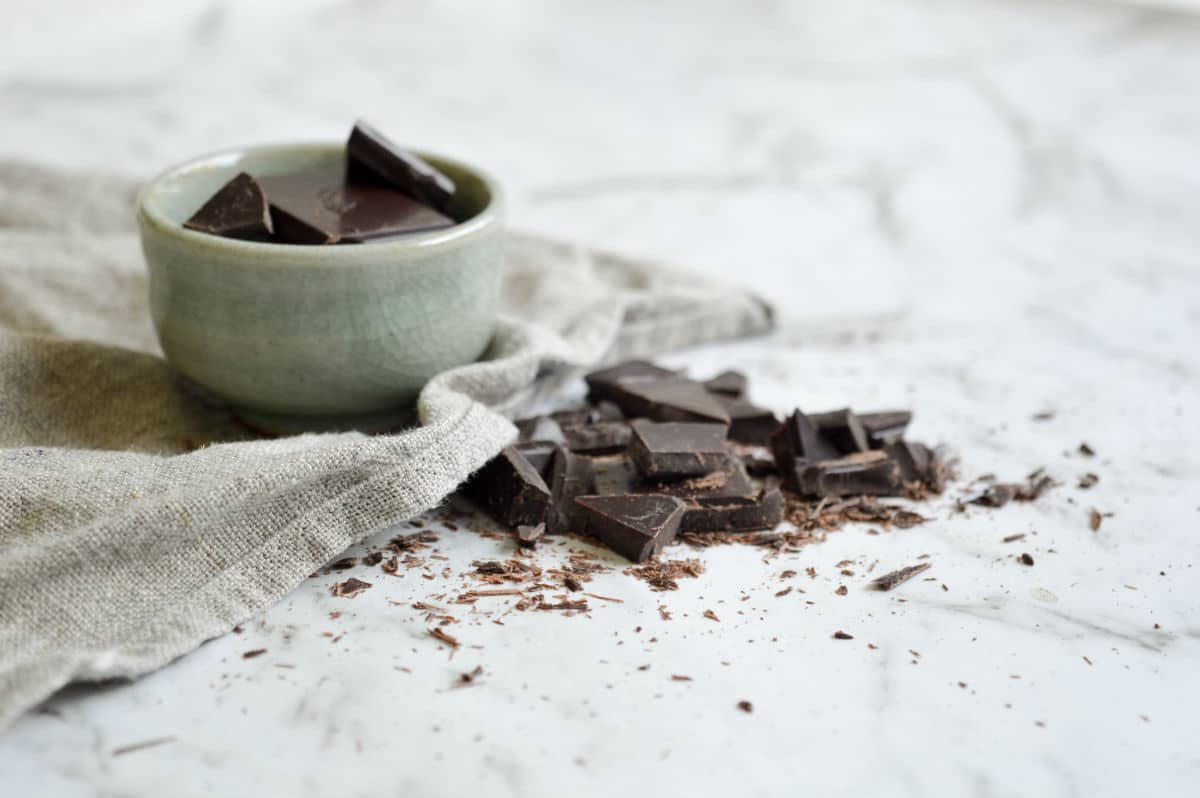
2020 has been challenging one. Among many traumatic events, natural disaster and environmental crises were among some of the most troubling. So it's unsurprising there's been a surge in the number of people who are opting for an environmentally-friendly plant-based, or a vegan, lifestyle. Australia is leading the charge in this space with Google searches for ‘veganism’ tripling in Australia since 2015.
If you are embracing a plant-based diet, what does that mean for one of life’s simple pleasures - chocolate eating? And do you need to go in search of vegan specific chocolate?
The good news is vegan chocolate is actually very easy to find. Chocolate expert, Shari Aubrey from Fiamma Life shares everything she knows about plant-based chocolate.
I love educating my customers that vegan friendly chocolate is very easy to buy and doesn’t require any epic quest to find it - nor do you have to miss out on amazing boutique chocolate experiences just because you’re plant-based.
Dark chocolate
The wonderful thing about good quality dark chocolate is it typically contains no animal products, even if not branded as vegan. Boutique chocolate producers pride themselves on the quality of their ingredients and keep them minimal, letting the flavour beans drive the experience. As such, quality dark chocolate should only contain, at a maximum, cocoa solids/mass, cocoa butter, vanilla, sugar and maybe soy lecithin (an emulsifier) - all of which are plant-based. This means quality dark chocolate is definitely on the vegan table, and you don’t have to give up your fav just because you eat plant-based.
However, you always check the ingredients panel - just in case there are some wolves in sheep's clothing; where cheaper brands include ingredients you wouldn’t expect in dark chocolate. For example, Cadbury Old Gold Original contains milk solids, even though you may consider it a dark chocolate. The other thing to watch out for is flavoured chocolate, and what ingredients have been added to achieve that flavour; as with all food production, the more mass market a product, the more likely they are to be liberal with inclusions versus boutique producers. But, you do not need to go in search of vegan specific chocolate - you just need to check that ingredients panel.
What about milk chocolate?
More good news - if you have a sweet tooth, you don’t have to give up milk chocolate.
There are more and more brands coming into the market who make milk chocolate with non-dairy milk, for example oat milk; or that use coconut oil for a lighter chocolate. These are increasingly easy to find, however be aware the taste and texture will differ from what you are used to as core ingredients have changed. But, as with anything - if you don’t like one product, try something else and you will hit upon a vegan milk chocolate you like. Tips for finding the best vegan milk chocolate - look for brands that talk about the quality of their beans (the best are known as flavour beans) and who can demonstrate artisan production values. In particular, if the bean type used is published on the packaging e.g. criollo, nacional, trinatario etc you’re potentially on to a good tasting chocolate as these are flavour bean variants, versus mass market beans.
Of course, the other option is to challenge your perception of dark chocolate, as this is certainly the easier of the vegan chocolate paths. The strong bitterness we often associate with dark chocolate isn’t about it being dark, or a high percentage; but comes from mass market chocolate using cheap beans that are poorly processed - which results in bitterness. In particular, if you have a sweet tooth, you can get ‘lighter’ dark chocolate, which is a little sweeter, and less intense. The one I love is Republica del Cacoa Ecuador 56% which offers a flavour profile that is robust but full of natural white floral tones, toasted nuts and a touch of honey; and is neither harsh, nor bitter - but is 100 per cent plant-based.
The moral of the story is, chocolate eating on a plant-based diet should be easy and doesn’t require vegan specific chocolate; nor expensive, or difficult to find products. I do recommend taking this as an opportunity to experiment with your chocolate options. Buy an amazing dark chocolate and perhaps you’ll be converted by the distinctive flavour profile, or maybe you’ll find an oat milk chocolate that rocks your world - be open minded, try new things and have fun with being plant-based.
You might also like Shari's recipe for a European-style hot chocolate.



